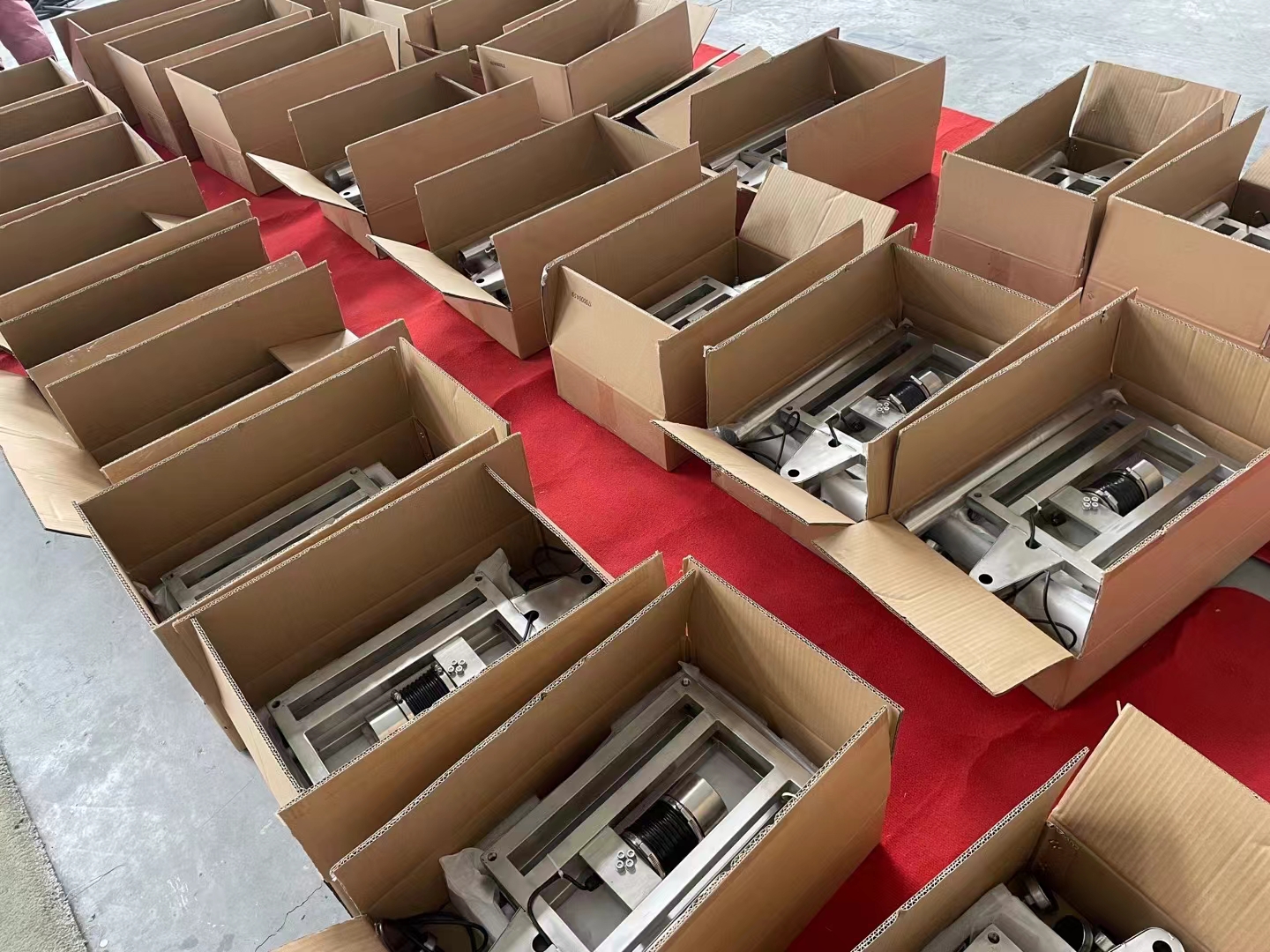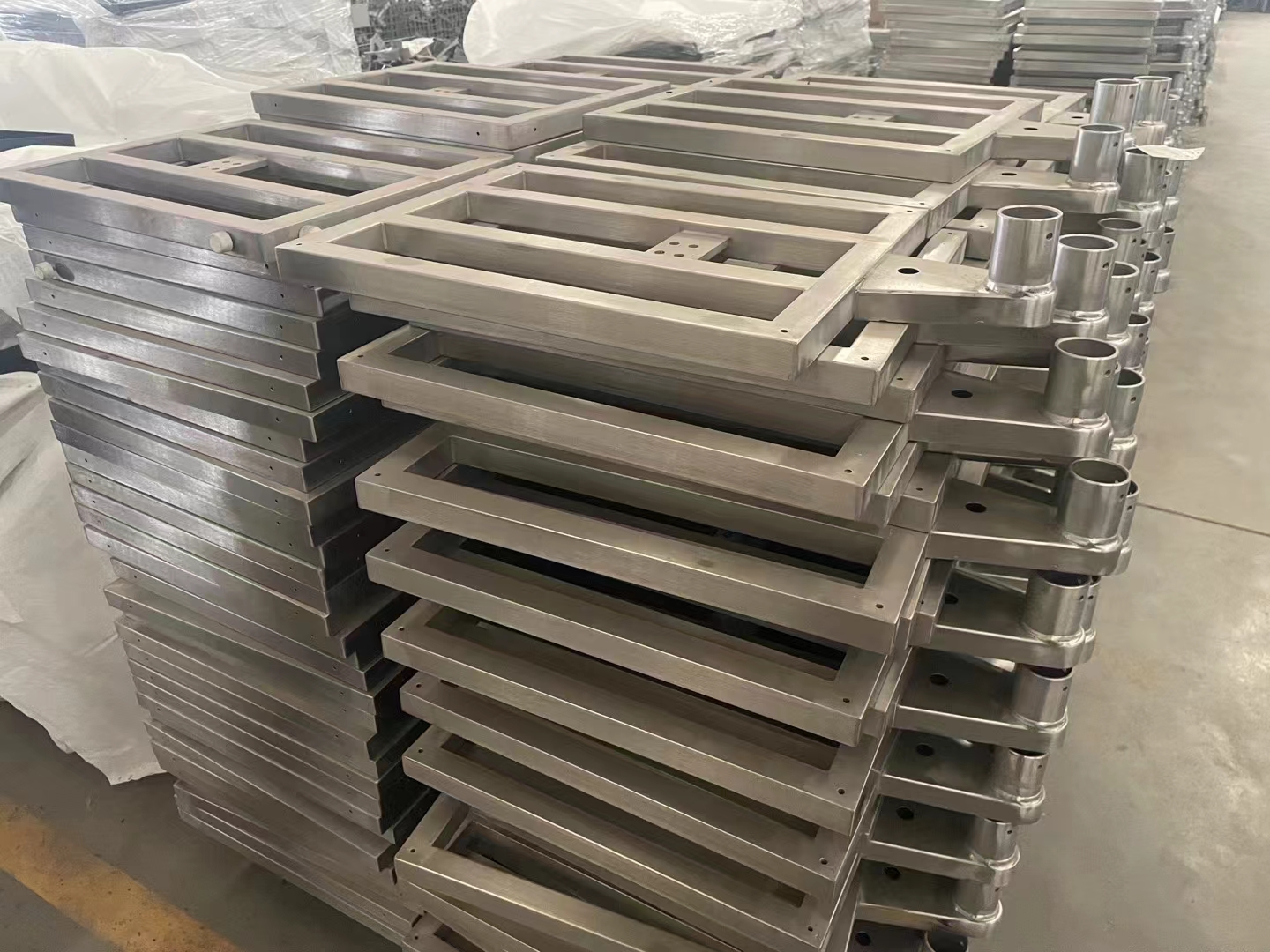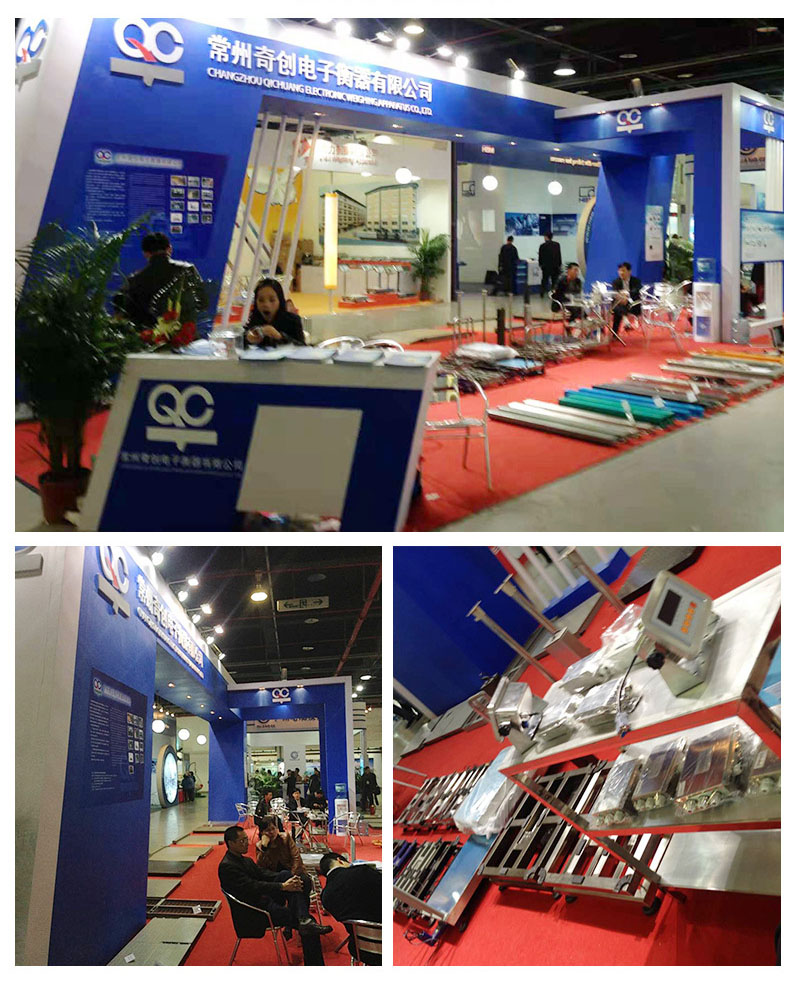Stainless Steel Bench Scale
QC Weighing
Stainless Steel
250X250mm~600X800mm
15kg~600kg
| Availability: | |
|---|---|








 QC weighing bench scale catalog.pdf
QC weighing bench scale catalog.pdf
Stainless steel bench scales are essential tools used for precise weighing in various industries. Renowned for their durability and resistance to corrosion, these scales are ideal for environments where hygiene and reliability are paramount.
By understanding their features, applications, and maintenance needs, users can maximize their benefits. As technology evolves, these scales will continue to integrate smart features, ensuring they remain essential in both traditional and modern settings.
These are the most commonly used bench scales, suitable for general purposes. They offer a balance of durability and accuracy, making them versatile for many applications.
High-precision models are designed for applications requiring exact measurements. They are commonly used in laboratories and industries where minute differences matter.
Waterproof scales are designed to withstand exposure to water and other liquids, making them perfect for the food and beverage industry or other wet environments.
| Capability | 15kg | 30kg | 60kg | 100kg | 150kg | 200kg | 300kg | 500kg | 600kg |
|---|---|---|---|---|---|---|---|---|---|
| Division | 2g | 2g | 5g | 10g | 10g | 20g | 20g | 50g | 100g |
| Size | 250*250mm 300*400mm 400*500mm 500*600mm 600*800mm 800*800mm | ||||||||
| Material | Carbon steel scale frame + stainless steel pan (optional full stainless steel material) | ||||||||
| Humidity | <85%RH | ||||||||
| Temperature | -10℃ ~ 40℃ | ||||||||
| Accuracy | Ⅲ | ||||||||
| Specification |
| ||||||||


(1) Maintain good weighing habits when using. The weighing goods should be placed in the middle of the electronic scale as much as possible to allow the scale sensor to receive balanced force. Avoid uneven force on the scale platform causing slight inclination, resulting in inaccurate weighing and affecting the service life of the electronic platform scale.
(2) When weighing, avoid overloading to ensure that the electronic platform is not damaged and the measurement is accurate.
(3) Keep the sensor clean and free of interference to avoid inaccurate weighing and skipping.
(4) Keep all connections secure to ensure normal use.
(5) When weighing, avoid contact, collision or vibration with the scale body.
(1) When using electronic equipment, avoid being close to sources of heat and vibration.
(2) Since there may be threats from insects and rats in many usage situations, some parts of the signal lines of the electronic scale are exposed, so it is necessary to strictly prevent damage by insects and rats.
(3) Keep the scale body clean and tidy to ensure the accuracy of measurement and the type of the platform. service life
(1) When the weighing display controller cannot be used for a long time (such as more than a month), power-on inspection should be carried out according to environmental conditions to avoid corrosion from moisture or other bad gases that will affect reliability.
(2) Open the scale cover regularly and remove the debris below. To ensure the stability of the electronic scale.
(3) If the weighing display of the electronic platform scale fails, the power should be cut off quickly. If the cause of the power outage cannot be accurately determined, the professional engineers of our company should be notified for inspection and sorting. Users cannot dismantle the chassis at will, let alone replace internal parts at will.
Stainless steel construction ensures that these scales are robust and can endure heavy use without damage, extending their lifespan.
Stainless steel is inherently resistant to rust and corrosion, which is essential for scales used in environments exposed to moisture and chemicals.
These scales provide precise measurements, crucial for applications requiring exact data, from laboratories to industrial settings.
Stainless steel surfaces are easy to clean and maintain, ensuring that the scales remain hygienic and functional over time.

Stainless steel provides a robust structure that can withstand heavy use and harsh conditions, making these scales long-lasting.
The non-porous surface of stainless steel is easy to sanitize, making it ideal for environments where hygiene is crucial, such as food processing and pharmaceuticals.
These scales can be used in a wide range of environments and applications due to their robust and adaptable design.
While the initial cost may be higher, the longevity and low maintenance needs of stainless steel bench scales make them cost-effective over time.

In laboratories, stainless steel bench scales are used for weighing chemicals, samples, and other materials with high precision, ensuring accurate and reliable results.
Industries utilize these scales for weighing parts, materials, and products. Their durability and accuracy help maintain quality control and efficient production processes.
The food and beverage sector relies on stainless steel bench scales for portion control, ingredient measurement, and quality assurance, ensuring consistent product standards.
In pharmaceuticals, precise measurement is critical. Stainless steel bench scales are used to weigh ingredients for drug formulation, ensuring compliance with stringent regulations.
 | Assessing Measurement NeedsIdentify what you need the scale for, considering the types of materials you’ll be weighing and the required precision. |
 | Considering Environmental ConditionsThink about the conditions the scale will be used in, such as exposure to moisture or chemicals, to ensure you choose a suitable model. |
 | Evaluating Scale Capacity and PrecisionSelect a scale with the appropriate capacity and precision for your specific needs, balancing these factors based on your applications. |
 | Budget ConsiderationsDetermine your budget and look for scales that offer the best value, balancing cost with essential features and durability. |
Clean the scale regularly to prevent buildup of residue and ensure hygiene, using appropriate cleaning agents and avoiding harsh chemicals.
Regular calibration ensures ongoing accuracy. Follow the manufacturer’s recommendations or schedule calibrations based on usage frequency.
Learn to identify and troubleshoot common issues such as erratic readings or display errors. Refer to the user manual for guidance or contact customer support.
Engage in preventive maintenance practices, such as checking for wear and tear and addressing minor issues before they become major problems.
Avoid placing items that exceed the scale’s capacity to prevent damage to the load cells and maintain accuracy.
Skipping regular maintenance can lead to inaccuracies and reduce the scale’s lifespan. Stick to a routine maintenance schedule.
Ensure the scale is suitable for the environment it will be used in, such as avoiding exposure to excessive moisture if the scale is not waterproof.
Regular calibration is crucial for maintaining accuracy. Ignoring calibration schedules can result in unreliable measurements.
Provide ongoing training and support for operators responsible for using the truck scale. Ensure they understand proper operating procedures, safety protocols, and troubleshooting techniques to address common issues. Regular training sessions can improve efficiency and reduce the risk of operator errors.
Address any issues free and promptly in one year by repairing or replacing damaged or malfunctioning components. This may include replacing load cells, cables, junction boxes, or electronic parts that are no longer functioning properly(except for natural disasters and man-made damage).
Stay updated with the latest software releases and system upgrades for the truck scale. Install software updates provided by the manufacturer to enhance performance, add new features, or address security vulnerabilities. Consider upgrading the scale's system hardware if needed to meet changing operational requirements.
Maintain service agreements with qualified technicians or service providers 24h remote hotline technical assistance to urgent service requests and provide onsite assistance when needed.


A: Bench scales should be calibrated regularly, typically every six months, or as recommended by the manufacturer. Calibration ensures ongoing accuracy and reliability.
A: Yes, but they must be certified as “legal for trade” scales. These scales meet specific standards required for commercial transactions.
A: Bench scales are designed for smaller, more precise measurements and are placed on countertops. Floor scales are larger and used for weighing heavy items or bulk materials.
A: Regular maintenance, proper cleaning, and avoiding overloading can extend the life of a bench scale. Calibration and following manufacturer guidelines are also crucial.
A: Some bench scales are water-resistant or waterproof, designed for use in environments where they may be exposed to moisture. Always check the specifications to ensure suitability for your needs.
 QC weighing bench scale catalog.pdf
QC weighing bench scale catalog.pdf
Stainless steel bench scales are essential tools used for precise weighing in various industries. Renowned for their durability and resistance to corrosion, these scales are ideal for environments where hygiene and reliability are paramount.
By understanding their features, applications, and maintenance needs, users can maximize their benefits. As technology evolves, these scales will continue to integrate smart features, ensuring they remain essential in both traditional and modern settings.
These are the most commonly used bench scales, suitable for general purposes. They offer a balance of durability and accuracy, making them versatile for many applications.
High-precision models are designed for applications requiring exact measurements. They are commonly used in laboratories and industries where minute differences matter.
Waterproof scales are designed to withstand exposure to water and other liquids, making them perfect for the food and beverage industry or other wet environments.
| Capability | 15kg | 30kg | 60kg | 100kg | 150kg | 200kg | 300kg | 500kg | 600kg |
|---|---|---|---|---|---|---|---|---|---|
| Division | 2g | 2g | 5g | 10g | 10g | 20g | 20g | 50g | 100g |
| Size | 250*250mm 300*400mm 400*500mm 500*600mm 600*800mm 800*800mm | ||||||||
| Material | Carbon steel scale frame + stainless steel pan (optional full stainless steel material) | ||||||||
| Humidity | <85%RH | ||||||||
| Temperature | -10℃ ~ 40℃ | ||||||||
| Accuracy | Ⅲ | ||||||||
| Specification |
| ||||||||


(1) Maintain good weighing habits when using. The weighing goods should be placed in the middle of the electronic scale as much as possible to allow the scale sensor to receive balanced force. Avoid uneven force on the scale platform causing slight inclination, resulting in inaccurate weighing and affecting the service life of the electronic platform scale.
(2) When weighing, avoid overloading to ensure that the electronic platform is not damaged and the measurement is accurate.
(3) Keep the sensor clean and free of interference to avoid inaccurate weighing and skipping.
(4) Keep all connections secure to ensure normal use.
(5) When weighing, avoid contact, collision or vibration with the scale body.
(1) When using electronic equipment, avoid being close to sources of heat and vibration.
(2) Since there may be threats from insects and rats in many usage situations, some parts of the signal lines of the electronic scale are exposed, so it is necessary to strictly prevent damage by insects and rats.
(3) Keep the scale body clean and tidy to ensure the accuracy of measurement and the type of the platform. service life
(1) When the weighing display controller cannot be used for a long time (such as more than a month), power-on inspection should be carried out according to environmental conditions to avoid corrosion from moisture or other bad gases that will affect reliability.
(2) Open the scale cover regularly and remove the debris below. To ensure the stability of the electronic scale.
(3) If the weighing display of the electronic platform scale fails, the power should be cut off quickly. If the cause of the power outage cannot be accurately determined, the professional engineers of our company should be notified for inspection and sorting. Users cannot dismantle the chassis at will, let alone replace internal parts at will.
Stainless steel construction ensures that these scales are robust and can endure heavy use without damage, extending their lifespan.
Stainless steel is inherently resistant to rust and corrosion, which is essential for scales used in environments exposed to moisture and chemicals.
These scales provide precise measurements, crucial for applications requiring exact data, from laboratories to industrial settings.
Stainless steel surfaces are easy to clean and maintain, ensuring that the scales remain hygienic and functional over time.

Stainless steel provides a robust structure that can withstand heavy use and harsh conditions, making these scales long-lasting.
The non-porous surface of stainless steel is easy to sanitize, making it ideal for environments where hygiene is crucial, such as food processing and pharmaceuticals.
These scales can be used in a wide range of environments and applications due to their robust and adaptable design.
While the initial cost may be higher, the longevity and low maintenance needs of stainless steel bench scales make them cost-effective over time.

In laboratories, stainless steel bench scales are used for weighing chemicals, samples, and other materials with high precision, ensuring accurate and reliable results.
Industries utilize these scales for weighing parts, materials, and products. Their durability and accuracy help maintain quality control and efficient production processes.
The food and beverage sector relies on stainless steel bench scales for portion control, ingredient measurement, and quality assurance, ensuring consistent product standards.
In pharmaceuticals, precise measurement is critical. Stainless steel bench scales are used to weigh ingredients for drug formulation, ensuring compliance with stringent regulations.
 | Assessing Measurement NeedsIdentify what you need the scale for, considering the types of materials you’ll be weighing and the required precision. |
 | Considering Environmental ConditionsThink about the conditions the scale will be used in, such as exposure to moisture or chemicals, to ensure you choose a suitable model. |
 | Evaluating Scale Capacity and PrecisionSelect a scale with the appropriate capacity and precision for your specific needs, balancing these factors based on your applications. |
 | Budget ConsiderationsDetermine your budget and look for scales that offer the best value, balancing cost with essential features and durability. |
Clean the scale regularly to prevent buildup of residue and ensure hygiene, using appropriate cleaning agents and avoiding harsh chemicals.
Regular calibration ensures ongoing accuracy. Follow the manufacturer’s recommendations or schedule calibrations based on usage frequency.
Learn to identify and troubleshoot common issues such as erratic readings or display errors. Refer to the user manual for guidance or contact customer support.
Engage in preventive maintenance practices, such as checking for wear and tear and addressing minor issues before they become major problems.
Avoid placing items that exceed the scale’s capacity to prevent damage to the load cells and maintain accuracy.
Skipping regular maintenance can lead to inaccuracies and reduce the scale’s lifespan. Stick to a routine maintenance schedule.
Ensure the scale is suitable for the environment it will be used in, such as avoiding exposure to excessive moisture if the scale is not waterproof.
Regular calibration is crucial for maintaining accuracy. Ignoring calibration schedules can result in unreliable measurements.
Provide ongoing training and support for operators responsible for using the truck scale. Ensure they understand proper operating procedures, safety protocols, and troubleshooting techniques to address common issues. Regular training sessions can improve efficiency and reduce the risk of operator errors.
Address any issues free and promptly in one year by repairing or replacing damaged or malfunctioning components. This may include replacing load cells, cables, junction boxes, or electronic parts that are no longer functioning properly(except for natural disasters and man-made damage).
Stay updated with the latest software releases and system upgrades for the truck scale. Install software updates provided by the manufacturer to enhance performance, add new features, or address security vulnerabilities. Consider upgrading the scale's system hardware if needed to meet changing operational requirements.
Maintain service agreements with qualified technicians or service providers 24h remote hotline technical assistance to urgent service requests and provide onsite assistance when needed.


A: Bench scales should be calibrated regularly, typically every six months, or as recommended by the manufacturer. Calibration ensures ongoing accuracy and reliability.
A: Yes, but they must be certified as “legal for trade” scales. These scales meet specific standards required for commercial transactions.
A: Bench scales are designed for smaller, more precise measurements and are placed on countertops. Floor scales are larger and used for weighing heavy items or bulk materials.
A: Regular maintenance, proper cleaning, and avoiding overloading can extend the life of a bench scale. Calibration and following manufacturer guidelines are also crucial.
A: Some bench scales are water-resistant or waterproof, designed for use in environments where they may be exposed to moisture. Always check the specifications to ensure suitability for your needs.